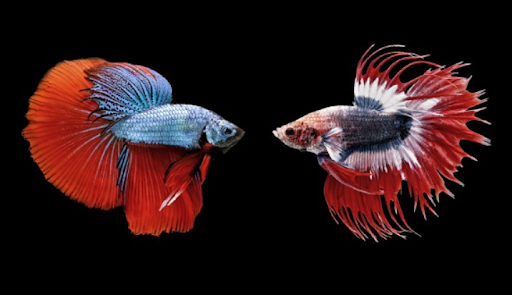How Many Pellets Should You Feed a New Betta Fish?

Feeding pellets is an important aspect of caring for your Betta fish. Overfeeding can result in health problems for the fish and can cause it stress. Underfeeding can also be harmful, causing the fish to not get enough nutrition or die from starvation. As a first-time Betta owner, knowing how many pellets to feed your Betta fish depends on its size, age, health status, and species. In this blog, we’ll discuss the benefits of feeding betta food pellets and how many pellets to feed a new betta fish.
What is a betta fish and what does it eat?
Bettas are a type of tropical fish and as such, they require a diet that is made up of fresh and live foods. Bettas are carnivorous and love to eat small pellets made of fresh or saltwater fish. These pellets can be made from smelt, goldfish, krill, or other similar ingredients.
You should feed your betta two to three pellets per day. Make sure the pellets you provide to your betta are free from impurities. You can do this by washing the ingredients thoroughly before feeding them to your pet. Also change the water in which your betta is housed every day to ensure its food remains fresh and clean. This will help keep its health and appearance in top shape.
What to do if your Betta fish refuses to eat pellets?
If your Betta fish is not eating pellets, there may be a problem with the pellets. Try changing the type of pellets or the number of pellets you are feeding your Betta. If that doesn’t work, you may need to take your Betta fish to a qualified veterinarian for assistance.
A healthy Betta fish should be able to eat pellets easily, so if it isn’t interested in eating pellets, there may be an issue with the pellets. Keep track of the amount of time your Betta has been eating pellets and adjust the amount of food over time to help your Betta learn to enjoy pellet-based nutrition.
What are the benefits of feeding Betta fish pellets?
When it comes to feeding pellets to your Betta fish, the benefits of using them are quite obvious. They are high in essential nutrients and proteins, making them a perfect diet for the freshwater fish. In addition to this, pellets provide a tailored diet that is tailored to the specific needs of the Betta fish. This ensures that the fish is provided with everything it needs to stay healthy and active.
Additionally, pellets are easy to feed and convenient for the pet owner. This makes them an ideal option for people who are looking for a nutritious and easy-to-digest food for their Betta fish. The cost of pellets is also much lower than purchasing live food items, making them an excellent alternative to expensive food items such as gourmetlike and flakes. All in all, feeding pellets to your Betta is a great way of ensuring its health and wellbeing.
How many pellets to feed a new betta fish?
The number of pellets you feed your new betta fish will vary depending on its age, size, and sex. A standard feeding regimen for a new betta fish is 1-3 pellets per day. You can gradually increase the number of pellets over time as your betta fish becomes more used to its new home. Make sure the pellets you feed your betta fish are fresh and free from chemicals. If your new betta fish appears to be not eating or eating less than usual, check to make sure the pellets are being swallowed whole and not just licked up. Also, be sure to provide the proper amount of water for your new friend to swim and eat regularly.
What are the risks associated with feeding Betta fish pellets?
Feeding Betta fish pellets is a great way to supplement the fish’s diet with essential nutrients. However, there are risks associated with feeding pellets to your Betta. Many of these ingredients can be harmful to the fish, including preservatives and by-products of processing. These can cause health issues, such as growth disorders and malnutrition.
Also, feeding pellets can lead to obesity and health problems, like mouth gaping, fin rot, and mouth injuries. This is because they are high in fat and sugar content. Too many pellets can also lead to aggression in the fish. Instead of feeding your beloved pet too many pellets, it is best to provide them with nutritious food in moderation.
Conclusion
A betta is a unique fish that is best cared for by feeding them pellets. Pellets are low-fat and nutritious, which is why they are ideal for new fish. They act as a natural food source and can be used to encourage betta fish to eat. Besides, betta fish pellets are easy to feed and transport, making them an ideal option for anyone looking to get their first-ever Betta fish. However, if you notice any change in the health of your Betta (such as less active behavior or increased waste production), then it is best to consult a pet expert.




